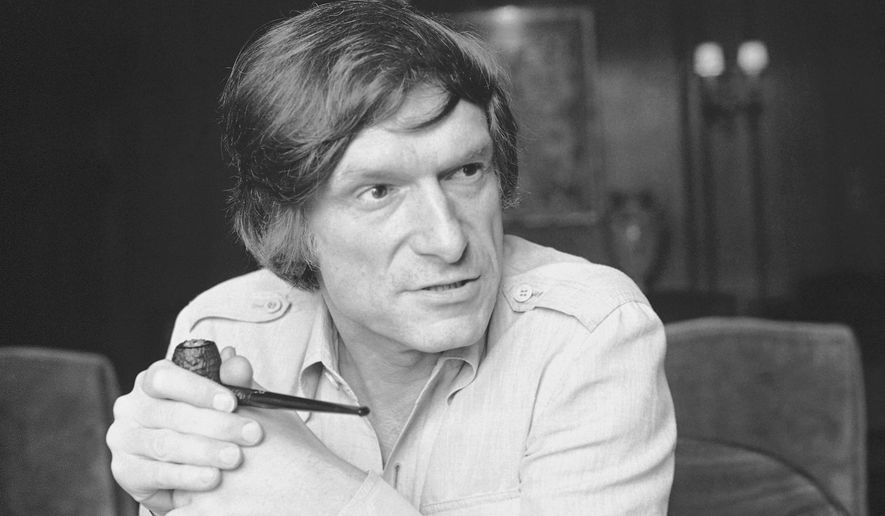LOS ANGELES (AP) - Playboy founder Hugh M. Hefner, the pipe-smoking hedonist who revved up the sexual revolution in the 1950s, has died at 91.
Hefner died of natural causes at his home surrounded by family on Wednesday night, Playboy said in a statement.
As much as anyone, Hefner helped slip sex out of the confines of plain brown wrappers and into mainstream conversation. In 1953, a time when states could legally ban contraceptives, when the word “pregnant” was not allowed on “I Love Lucy,” Hefner published the first issue of Playboy, featuring naked photos of Marilyn Monroe (taken years earlier) and an editorial promise of “humor, sophistication and spice.”
Playboy soon became forbidden fruit for teenagers and a bible for men with time and money. Within a year, circulation neared 200,000. Within 5 years, it had topped 1 million.
By the 1970s, the magazine had more than 7 million readers and had inspired raunchier imitations such as Penthouse and Hustler. Competition and the internet reduced circulation to less than 3 million by the 21st century.
But Hefner and Playboy remained brand names worldwide.
Asked by The New York Times in 1992 of what he was proudest, Hefner responded: “That I changed attitudes toward sex. That nice people can live together now.”
Hefner was born in Chicago on April 9, 1926, to devout Methodist parents who he said never showed “love in a physical or emotional way.”
“Part of the reason that I am who I am is my Puritan roots run deep,” he told the AP in 2011. “My folks are Puritan. My folks are prohibitionists. There was no drinking in my home. No discussion of sex. And I think I saw the hurtful and hypocritical side of that from very early on. “
Hefner ran Playboy from his elaborate mansions, first in Chicago and then in Los Angeles, and became the flamboyant symbol of the lifestyle he espoused. For decades he was the pipe-smoking, silk-pajama-wearing center of a constant party with celebrities and Playboy models.
Hefner was host of a television show, “Playboy After Dark,” and in 1960 opened a string of clubs around the world where waitresses wore revealing costumes with bunny ears and fluffy white bunny tails. Playboy’s clubs also influenced the culture, giving early breaks to such entertainers as George Carlin, Rich Little, Mark Russell, Dick Gregory and Redd Foxx. The last of the clubs closed in 1988, when Hefner deemed them “passe” and “too tame for the times.”
In the 21st century, he was back on television in a cable reality show - “The Girls Next Door” - with three live-in girlfriends in the Los Angeles Playboy mansion.
Playboy proved a scourge, and a temptation. Drew Barrymore, Farrah Fawcett and Linda Evans are among those who have posed for the magazine. Several bunnies became celebrities, too, including singer Deborah Harry and model Lauren Hutton, both of whom had fond memories of their time with Playboy.
Other bunnies had traumatic experiences, with several alleging they had been raped by Hefner’s close friend Bill Cosby, who faced dozens of such allegations. Hefner issued a statement in late 2014 he “would never tolerate this behavior.” But two years later, former bunny Chloe Goins sued Cosby and Hefner for sexual battery, gender violence and other charges over an alleged 2008 rape at the Playboy Mansion.
After a stroke, Hefner handed control of his empire to his feminist daughter, Christie, although he owned 70 percent of Playboy stock and continued to choose every month’s Playmate and cover shot. Christie Hefner continued as CEO until 2009.
Hefner is survived by his wife Crystal as well as his daughter, Christie; and his sons, David, Marston and Cooper.
___
AP National Writer Hillel Italie and Entertainment Writer Sandy Cohen contributed to this report.




Please read our comment policy before commenting.